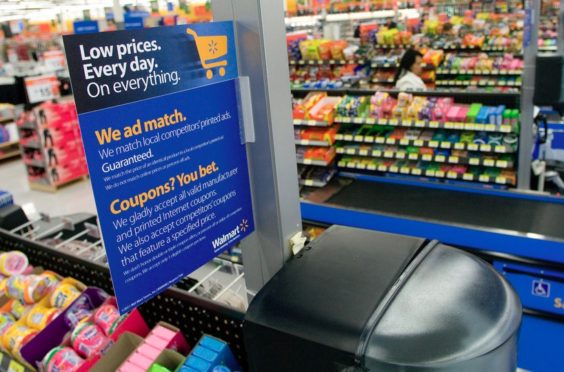
Granting $8,000 in fraudulent ad match requests to an extreme couponer is one thing. Stealing $8,000 from a cash register is something else altogether. The difference between the two, is the focus of a lawsuit between a former Walmart cashier and her onetime employer.
An Arkansas appeals court this week overturned a lower court’s ruling in part, allowing the cashier’s lawsuit to proceed to trial.
The story began back in July 2012, when 22-year-old Mai Sawada was working part-time as a Walmart cashier in Russellville, Arkansas. She was arrested for felony theft, after Walmart determined she had been giving extreme discounts to a self-described “extreme couponer,” allowing her to use invalid coupons and accepting her suspicious ad match requests.
“She is one of my friends, so whenever she tells me the price of ad match I do not check the ad even though it is not a reasonable price,” Sawada wrote in a statement to Walmart managers. “I just price override whatever the price she told me.” Sawada also admitted she “just scanned all the coupons she had,” even if her friend didn’t meet the purchase requirements.
The appeals court recounted two specific incidents as examples of what Walmart said routinely went on. On one occasion, Walmart said, Sawada’s friend bought 32 containers of Lysol wipes that sold for $2.48 apiece, but she requested an ad match that made them 75 cents each. She then handed over a stack of coupons and ended up getting all of the wipes for free, plus 27 cents in overage.
On another day, Walmart said the customer made eight trips through Sawada’s checkout lane during a two-hour period. And Sawada “provided a price override for every single item.”
Walmart estimated its losses to be in excess of $8,000. After taking Sawada’s statement, asset protection managers called police and had her arrested.
Sawada argued that a supervisor approved many of the transactions, and surveillance video showed customer service managers did okay them – without even looking at the discounts Sawada was providing. So Walmart ultimately chose not to pursue the case.
And then Sawada sued them.
A police report erroneously stated that Walmart managers “had observed Ms. Sawada taking money out of the registers… The total loss to Walmart was $8,000.”
After reading a story in the local paper based on that police report, Sawada sued Walmart for defamation, malicious prosecution, abuse of process, outrage, and false light/invasion of privacy. A local court threw out her case last year, so she appealed.
“Was she fired for stealing $8,000 from the cash register?” the appeals court asked. “Or was she fired because she gave a friend $8,000 worth of drastic and unreasonable price discounts in a manner that Walmart deemed unethical?”
The appeals court upheld most of the lower court’s ruling, determining that the police officer’s erroneous report was an honest mistake. But it let Sawada’s defamation claim stand, citing “a triable dispute on whether Walmart accurately reported the circumstances of Sawada’s termination to the police.”
In the end, Sawada is out of a job, Walmart is out $8,000, and Sawada’s extreme couponing friend roams free. Walmart has likely learned to be more careful when reporting thefts, Sawada has probably learned not to be so trusting – and her friend has likely learned that it pays to befriend a cashier when you’re committing fraud. Especially one that will end up taking the fall for you.
Photo by Walmart Corporate













